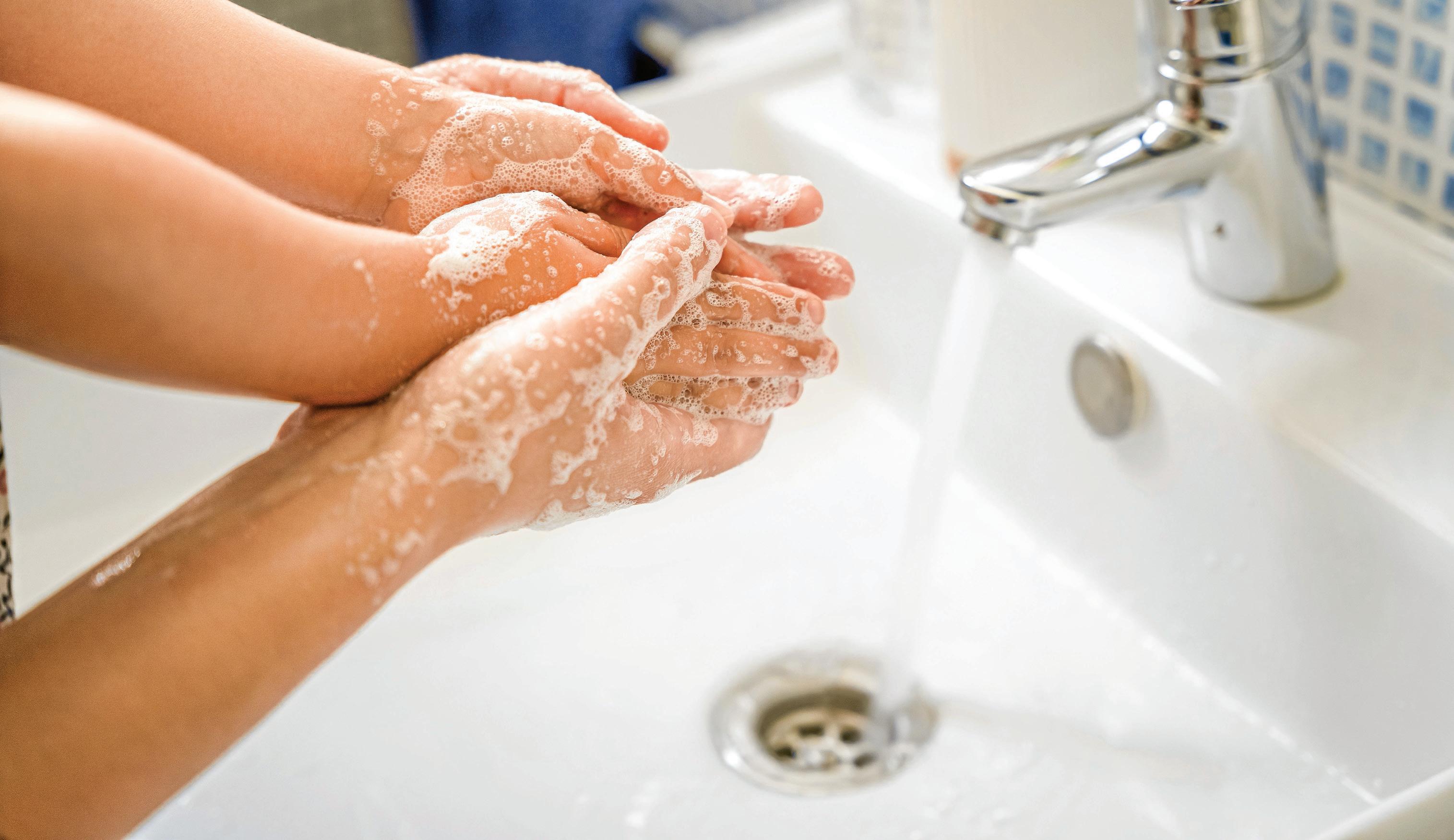
2 minute read
Be Well


Advertisement
TIPS FOR STAYING HEALTHY THIS WINTER



Teaching children proper hand-washing techniques can help prevent the spread of germs during cold and fl u season.
ADOBE STOCK
CHILDREN’S PHYSICIANS
With u season in full swing and the rise in RSV, there can be increased concerns about how to limit exposure to an illness and what to do if your child becomes sick.
It can also be tricky to determine what your child develops because the common cold, COVID-19, the u and RSV share many of the same symptoms: fever, cough, fatigue, stuffy nose, sore throat and sneezing. If your child is not feeling well, here are a few ways to ensure you and your family stay healthy this winter.
CONSULT YOUR PEDIATRICIAN
If you have concerns about vaccines, athome treatments or symptoms, contact your pediatrician for further guidance. Your pediatrician will determine if your child needs to be seen. Many over-the-counter medicines contain ingredients that can harm children, so seek your pediatrician’s recommendations before giving any medication. If your pediatrician recommends being seen, tests can be performed to confi rm your child’s illness.
STAY UP-TO-DATE WITH VACCINES
Make sure you and your child are upto-date on all vaccines. Vaccines prevent the spread of diseases and protect your child from serious diseases. Children six months and older are eligible for the fl u and COVID-19 vaccines.
LIMIT PERSON-TO-PERSON TRANSMISSION
anyone showing symptoms of an illness. Cover coughs and sneezes with a tissue and wear a mask if you must leave home. Teach your children proper techniques by sneezing or coughing into a tissue or their elbow. If your child is showing symptoms, keep them home from daycare or school to allow your child to rest and to prevent others from becoming ill.
WASH YOUR HANDS FREQUENTLY
Frequently washing your hands is the best way to prevent spreading sicknesses. The best practice is to wet your child’s hands and scrub them for 20 seconds. Wash your hands before eating, after using the restroom, playing with pets, playing outdoors, sneezing, coughing or blowing your nose.
WHAT TO DO AT HOME
Stay hydrated. Make sure your child is drinking enough fl uids to prevent dehydration. Manage fever and pain with over the counter fever reducers and pain relievers if approved by your pediatrician. Call your doctor if their temperature reaches 100.4 F for children under three months and 104 F for any age.
When your child is sick, it can be hard to know where to go for the right level of care. Visit childrensomaha.org/whentogo for guidelines on when it’s best to schedule an appointment with your pediatrician, schedule a virtual care appointment, visit an urgent care or go to the emergency room.




